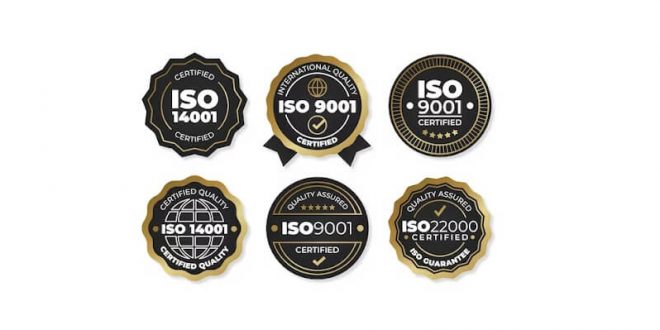ISO stands for the International Organisation for Standardisation. An organization’s processes, procedures, and management systems are examined during an audit to ensure they adhere to ISO standards. It is a crucial tool for businesses trying to increase productivity, cut expenses, and boost customer happiness. Many industries cover ISO standards, including manufacturing, healthcare, education, and construction. Aegis.qa explains that ISO auditing is crucial in ensuring that an organization complies with the standards to function effectively and efficiently, regardless of the industry.
How Do ISO Standards Work?
ISO Standards, a set of globally accepted norms, define the best practices in a particular field of business. These guidelines have inclusions of a wide range of topics, such as information security, environmental management, and quality management.
Besides this, ISO Standards aim to give businesses a framework for enhancing their operations, cutting expenses, and raising customer satisfaction. Although adopting ISO Standards is optional, many companies do so to show their dedication to excellence and ongoing progress.
ISO Auditing.
An organization’s processes, procedures, and management systems are examined as part of an ISO audit to make sure they adhere to the ISO Standards. The organization may conduct internal audits, or a third-party auditor may conduct external audits.
An ISO audit aims to find areas that need improvement, confirm that ISO Standards are being followed, and boost customer satisfaction. For an audit, the auditor will inspect papers, conduct staff interviews, and scrutinize procedures to ascertain whether the organization is adhering to the relevant standards.
Different ISO Audits
Three different types of ISO audits exist:
- First-party Audit: An internal audit by the organization to evaluate its practices.
- Second-party Audit: An examination by a client or a supplier to confirm that the business complies with their particular demands.
- Third-party Audit: An external examination by a neutral auditor to ascertain whether the company complies with the ISO Standards.
The Advantages of ISO Audits
Numerous advantages of ISO auditing for businesses include:
Process And Procedure Improvements
Organizations can improve their processes and procedures by using ISO auditing. Organizations may boost productivity, cut waste, and raise the caliber of their goods and services by focusing on these areas.
Customer Satisfaction Is Higher.
By guaranteeing that businesses satisfy customers’ needs and expectations, ISO Standards aim to increase customer satisfaction. Organizations can improve customer satisfaction and establish a solid reputation by adhering to ISO Standards.
Enhanced Engagement of Employees
ISO auditing involves employees in the process of ongoing improvement. This engagement might result in increased job satisfaction, higher morale, and a stronger dedication to the organization’s objectives.
Competitive Benefit
By demonstrating their dedication to quality, safety, and the environment, organizations can gain a competitive edge by obtaining an ISO certification. Businesses with ISO certification tend to attract more clients and suppliers, boosting sales and revenue.
Using ISO Auditing
It doesn’t have to be difficult to conduct an ISO audit. So, here is a step-by-step manual to assist you in understanding the auditing procedure:
- Select the ISO Standard: The selection of the ISO Standard that the organization wishes to audit against is the first step in the auditing process. This could be an environmental management standard like ISO 14001 or a quality management standard like ISO 9001.
- Choose an Auditor: Choosing an auditor is the next step. An organization employee or an outside auditor from a third party can serve as the auditor. Selecting an auditor with knowledge of the ISO Standard being audited is crucial.
- Pre-Audit Meeting: During the pre-audit meeting, the organization has the chance to tell the auditor about its policies and practices. The auditor can also use this meeting to review the auditing procedure and address any company queries.
- Audit: To ascertain if the organization complies with the standards of the ISO Standard, the audit entails evaluating paperwork, questioning staff, and monitoring procedures. The auditor’s report will highlight any areas that require improvement.
- Corrective Action: Following the audit, the organization must fix any problems the auditor found. The company should also create a strategy to stop the issues from happening again.
- Certification: The organization may request a certificate after taking corrective measures. The audit report and supporting paperwork are examined as part of the certification process to make sure the organization complies with the ISO Standard’s requirements.
In Conclusion
Three years are the duration of an ISO certification. However, organizations must participate in yearly surveillance assessments to keep their certification. Also, if your organization fails an ISO Audit, the auditors will provide you with a report outlining the areas that require improvement. You must implement corrective measures and undergo another audit to obtain certification.
Moreover, several ISO Standards may require organizations to undergo audits. Nevertheless, it is crucial to guarantee that the auditors have the required knowledge and proficiency in each standard being examined.
Conclusion
ISO auditing can be useful for businesses aiming to increase productivity, cut expenses, and boost customer satisfaction. Your company can complete the auditing process and obtain ISO Certification by following the instructions provided in this handbook.
So, keep in mind that ISO auditing is a constant process of improvement. Your company can ensure it is always working at its peak and offering its clients the greatest goods and services by keeping compliance with ISO Standards.
 Free Web Resources , psd, mockups, & web templates Best WordPress Themes & Best Html Templates
Free Web Resources , psd, mockups, & web templates Best WordPress Themes & Best Html Templates








